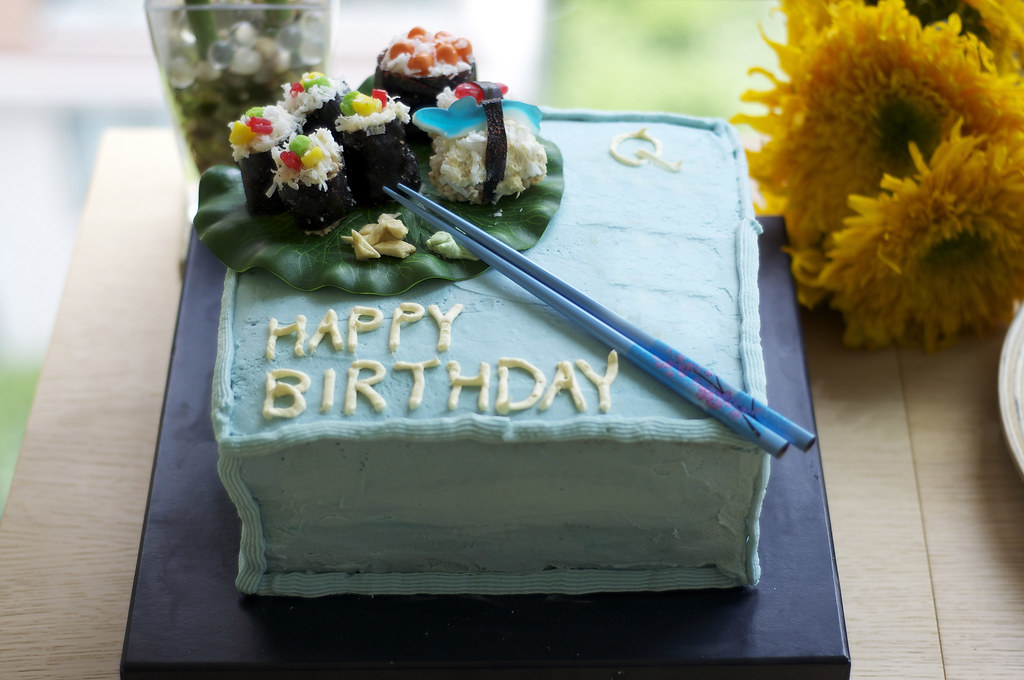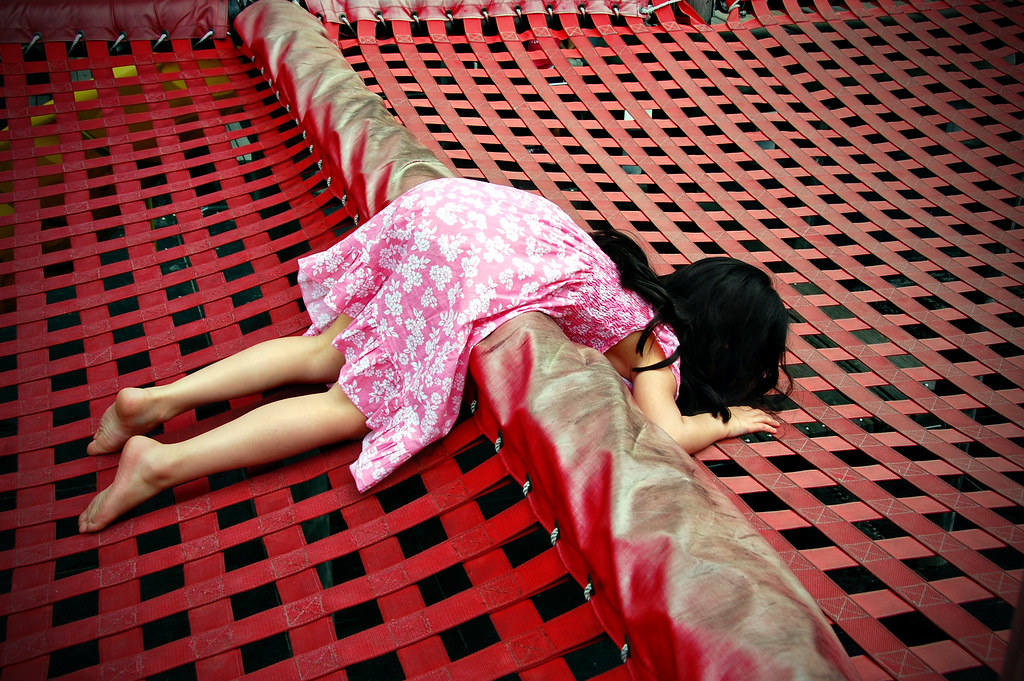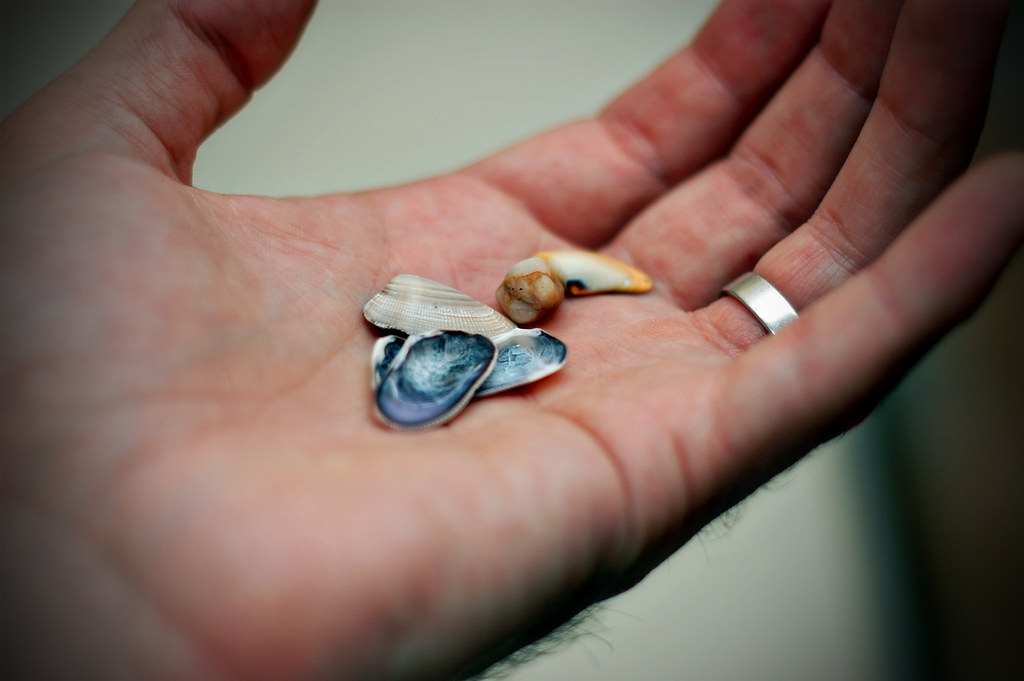 |
| Her finest cake yet? |
My pockets harbor fleets of Q's gum-wrapper boats.* While I'm busy chewing and not thinking about chewing, she's walking and folding (and chewing). And after what seems like an instant, she holds up the small ocean of her hand with a tiny boat at sea in it.
Which is one reason why we decided (with Q's enthusiastic approval) on an origami and candy sushi making birthday party for her this year. Both Q and The Boy like paper crafts, but Q especially enjoys the rigor of origami, with its step-wise instructions and nested complications. (The Boy still prefers LEGOs and the improvisations they afford.) And candy sushi has been a favorite treat at their parties for a few years now. My wife thought the kids might enjoy making it and taking it away in a personalized Chinese take-out container — something I'm pretty much certain that all New York kids are first-hand familiar with.
My lovely wife has become something of a master at party planning over the years, and throwing a good kids birthday party is appreciably difficult. It takes a certain amount of guessing, since the right amount of time needs to be filled with party fun/activities that should respect the guests' skills and spans of attention. (Otherwise, you'll find kids scarfing all around your neck at the same, loud time letting you know that their whatever doesn't work.**) As she demonstrated again this year, my wife has the right mix of creativity, steeliness, and perfectionism that leads to genuine good times in our miniscule apartment. We kept the guest list small as before, around 10 kids, which is just about our apartment's capacity — at least if you want to do anything beyond yelling. We chose three origami projects of increasing difficulty, figuring we'd get to two, which turned out to be on the money. Given the general party theme, we started with a beginner-level origami carp that everyone was able to follow along into completion with little trouble. Then Q showed her peers how to fold a paper boat. She was a great teacher — good pace and patience, happy to help strugglers. She seemed to be enjoying the teaching as much as the doing (note: teaching is definitely a form of doing, cliche notwithstanding), and I was really proud of her.
Then came the candy-sushi making. My lovely wife had assembled all the ingredients beforehand, and each kid only had to spread out a fruit roll up (the seaweed), put a rectangle of warmish Rice Krispie treat on top, put a few Twizzler whips inside and a Swedish fish or two, and roll the thing into a log. My wife then cut each kid's log into rolls and put them in her or his takeout box. The takeout containers full of tiny-hand-rolled sushi, together with the paper creations and a cute, Japanese origami kit, made for the goody bag that the kids themselves largely made. The cake, as usual, was gorgeous: lemon, four layers, with blue buttercream frosting. My wife found this fake water lily flower in Chinatown, and used the lily-pad part as the stage for some seriously good-looking candy sushi and sashimi of her making. Several moms stayed the duration, enjoying each other and the leisure of watching their children engaged in something they didn't have to produce or direct.
Q's party took much of the weekend's oxygen, but it wasn't, of course, the only attention-worthy event. Perhaps it's fitting that we had a birthday party the Saturday before Mother's Day, though we don't need any additional evidence that the kids' mother deserves a heaven of her own. We appreciated her as we usually appreciate members of our family, which is to say with favorite foods and good coffee and some lovely drawings by the kids taped into frames they also made themselves. Life shuffled on, too; there were still Q's yoga class and The Boy's baseball game, among other things. I wanted to take everyone out to a fancy place for dinner, but after the usual negotiations, we settled for eating sushi (real this time) on our floor picnic-style and watching a Star Wars. We didn't really settle, in other words, or at least I hope my wife doesn't think so.
I like traditions and holidays, mainly because they're ways we share memory through action, remaking them, too, in the remembering. I suppose that some things can't be adequately celebrated regardless of the gift — I'd put a year in someone's life and mothers squarely in this category. But I think that's as it should be.
Plate a piece of cake, crease a square of paper, hand them to another. Make the good stories a little longer.
Happy birthday, and Happy Mother's Day.
____________________
*Just one of the many things in my pockets from Q. See, e.g., "Aboutness" from a little while back.
**Which is another way of saying that you have to respect your own limitations, too, or otherwise there might be a problem with the robot.



